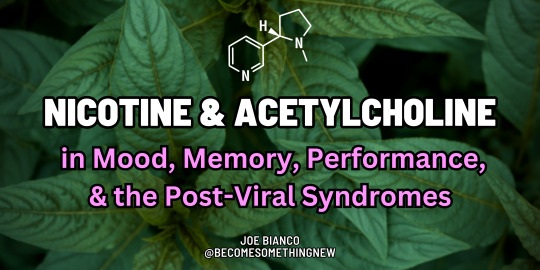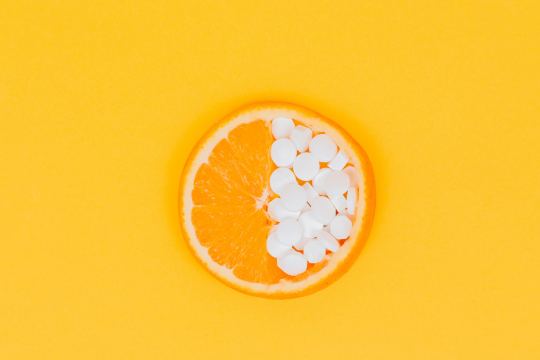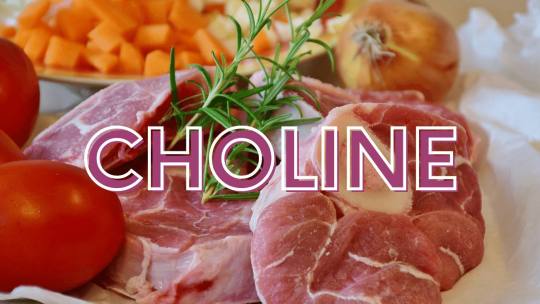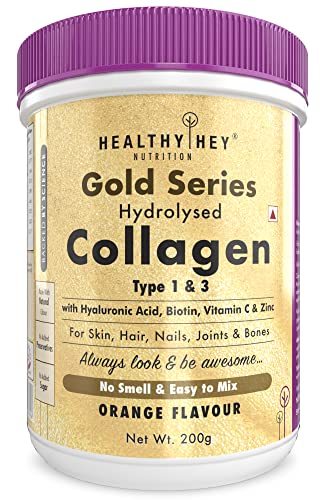#choline
Text
3 notes
·
View notes
Text
Red meat contains choline and L-carnitine, which are metabolised by our gut microbes into a compound called TMA, which our liver then converts to TMAO.
"Soil: The incredible story of what keeps the earth, and us, healthy" - Matthew Evans
#book quote#soil#matthew evans#nonfiction#red meat#choline#l carnitine#metabolism#microbes#gut bacteria#tma#liver#conversion#tmao
2 notes
·
View notes
Text
Nicotine & Acetylcholine in Mood, Memory, Performance, & the Post-Viral Syndromes [PREVIEW]
The following is a preview of a Patreon-exclusive newsletter
Click the icon below to support Become Something New for the cost of just one cup of coffee per month for access to this and upcoming Patreon-only content. ☕📖🧠💪
Patreon
[THE FOLLOWING IS A PREVIEW OF A FULL 11-PAGE NEWSLETTER]
Choline is a vitamin-like essential nutrient and methyl donor involved in a wide variety of bodily…

View On WordPress
#acetylcholinesterase#addiction#adenosine#aggression#aging#alzheimers#alzheimers disease#antidepressant#anxiety#aphrodisiac#appetite#athletic#biohacking#caffeine#choline#chronic fatigue#cognition#cold showers#cortisol#covid-19#creativity#dementia#depression#dopamine#dreams#dysautonomia#endotoxin#fat loss#forskolin#inositol
4 notes
·
View notes
Text

Unlock the power of often overlooked but essential nutrients! Choline for brain health, Magnesium for muscle function, and Selenium for immune strength. Discover these vital elements in eggs, nuts, seeds, seafood, and more. Nourish your body wisely!
#NutritionMatters#EssentialNutrients#BrainHealth#MuscleFunction#ImmuneStrength#Choline#Magnesium#Selenium#NutritionAwareness#NourishYourBody#BalancedDiet#FoodIsFuel#HealthyChoices#NutritionFacts
0 notes
Text
https://goo.gl/maps/YD3hurPiSEuzF2FM8
Biomed Animal Care a distributor for Poultry Medicine,Poultry Supplementary,Poultry Raw Material Poultry Vaccines,Animal Health,Poultry Antibiotic Medicine, Poultry Water Sanitizer,Animal Antibiotic Medicine,Animal Feed Supplements and Poultry Farm Disinfectant in Namakkal
Address: No:611A/3, Mithun Arcade, Salem - Namakkal Rd, Namakkal, Tamil Nadu 637001
#drchol#choline#fatmetabolism#acetylcholine#antibiotics#animalcare#poultrymedicines#anibacterial#poultryantibiotics#animalhealth#poultryhygiene#animalhygiene#poultrysupplements#probiotics#intestinacellwall#blicheniformis#BSubtilis#poultrycare#poultryprobiotics#biomedanimalcare
1 note
·
View note
Text
Why This Ingredient 2: Vitamins
Part 2 of my series on pet and livestock feed ingredients! If you ever wondered why a certain vitamin is in something, I've got a little synopsis of what it does waiting just for you.
Did you know most animals make their own vitamin C?Photo by Diana Polekhina on Unsplash
It comes as a surprise to no one that everyone needs to eat their vitamins, including the livestock out in our yards and pastures. Knowing what vitamins, and what those vitamins do, however, is another story. I’m sure you’ve taken a look at a label and wondered what on earth that vitamin is for, so I made you…

View On WordPress
#Animal Nutrition#ascorbic#b vitamins#b12#b3#b6#biotin#choline#d1#d3#educational#edutainment#folic acid#k2#k3#menadione#niacin#nicotinic#nutrition#pantothenic#pyridoxine#riboflavin#thiamine#vitamin a#vitamin c#vitamin d#vitamin e#vitamin k#vitamins
0 notes
Photo

Brittany Randy Spears Announces Ex-Boyfriend Coryell Farrell Disclosure..."Wild Man"
Source: k-star-holic.blogspot.com
0 notes
Text
Several phospholipase enzymes hydrolyze specific bonds of phosphoglycerolipids to produce lipid signaling molecules (Figure 15.6). (...) Both DAG and IP3 have been implicated in the regulation of Ca²+ fluxes, which are important for a wide variety of physiological processes (see Figure 15.6B).

"Plant Physiology and Development" int'l 6e - Taiz, L., Zeiger, E., Møller, I.M., Murphy, A.
#book quotes#plant physiology and development#nonfiction#textbook#phosphoglycerolipid#phospholipase#enzymes#hydrolysis#lipids#calcium#diacylglycerol#inositol triphosphate#phospholipids#galactolipids#choline#ethanolamine#glycerol#serine
1 note
·
View note
Text
Update on noopept -
1 - insufflation (snorting) is more efficient than oral. I can am confident in saying it has more impact that route. The powder has a very slight floral aroma in the jar but has no smell or sensation when insufflated, which makes it very easy. If you are prone to post nasal drip you might end up with the bitter taste in your mouth, but it's not so bad.
2 - you must up your choline intake! Couple days of insufflated 10mg and I wound up with a nasty cluster headache and had a real big meltdown/manic episode. It improved almost immediately with 350mg of choline bitartrate in water. I believe the more efficient uptake of the noopept caused me to burn through my usual choline intake faster than average and I didn't figure it out until I had a mini crisis. These things happen.
I am going to supplement with choline, at least 100mg per day, for the next little bit, see if I even out. The upper safe level is 3500mg and I intend to stay well below 1000, because too much choline can also be a problem!
0 notes
Photo

wedding special Lehengha choli with Dupata Choli Fabric : Gorgette Size : Unstich Work. : Embroidery with 9mm Sequnce Unstich Upto 44 Lehenga Fabric : Gorgette Inner : Crep WORK : embroidery with 9mm Sequnce Size : XXL Stiching type : Semistich Upto 44 Dupata Fabric : Gorgette Work : embroidery with 9mm Sequnce lace broder Package Details 1 Choli / 1 Lehengha / 1 Dupata Shop Now #laxmistyle #cholikepeechekyahai #cholimoments #lehengha_choli_collection #cholitas #choliseo #cholila #cholis #cholikepeeche #choli #lehenghablouse #choline #cholito #choliseodepuertorico #lehenghamalaysia #choliholic #cholidesign #intags #cholistan #choliseopr #cholita #cholicollection #cholilaonline #cholisuit #cholismo #lehengha #lehenghas #cholifan #lehenghacholi #cholidesigns https://www.instagram.com/p/CmX_MyOKy24/?igshid=NGJjMDIxMWI=
#laxmistyle#cholikepeechekyahai#cholimoments#lehengha_choli_collection#cholitas#choliseo#cholila#cholis#cholikepeeche#choli#lehenghablouse#choline#cholito#choliseodepuertorico#lehenghamalaysia#choliholic#cholidesign#intags#cholistan#choliseopr#cholita#cholicollection#cholilaonline#cholisuit#cholismo#lehengha#lehenghas#cholifan#lehenghacholi#cholidesigns
1 note
·
View note
Text
Yang (fat-soluble) vitamins [DA HECK]: D, A, H (biotin), E, Choline, K
0 notes
Text
So we ordered some stuff the other day, and it just came in today. Dad needed choline, and I ordered catnip seeds and a new deck of cards. These are my new Steampunk Lenormand cards, my first physical deck. I already had the Steampunk Tarot from the same creator, and then she made a Lenormand deck. I just had to wait until I had the money to spare. I'm excited to work with it, and maybe do readings by combining the two decks.
-Bernadette 🪩😺
#online orders#lenormand#catnip#choline#supplements#divination#divination cards#tarot#tarot cards#steampunk
0 notes
Photo

(via Choline health facts)
1 note
·
View note
Text
HealthyHey Nutrition Collagen Gold Series with Hyaluronic Acid, Biotin & Vitamin C - No Smell - Easy to Mix - No Added Sugar - For Skin, Hair & Nails (Orange, 200gm)
HealthyHey Nutrition Collagen Gold Series with Hyaluronic Acid, Biotin & Vitamin C – No Smell – Easy to Mix – No Added Sugar – For Skin, Hair & Nails (Orange, 200gm)
Price:
(as of – Details)
Product Description
Is Discontinued By Manufacturer : No
Product Dimensions : 10.2 x 10.2 x 14 cm; 200 Grams
Date First Available : 15 May 2018
Manufacturer : HealthyHey Foods LLP
ASIN : B07D3YD7FP
Item part number : 12345
Country of Origin : India
Manufacturer : HealthyHey Foods LLP, HealthyHey Foods LLP 227, Building No.5 B, Mittal…

View On WordPress
#Amino Acids#Antioxidants#ascorbic acid#b complex#b1#b12#b5#b6#best multivitamin for men#best vitamins for women#beta carotene#biotin#calcium tablets#celin 500#centrum silver#Charcoal#cholecalciferol#choline#Chondroitin & Glucosamine#Citric Acid#Collagen#Combination Multivitamins & Minerals#cyanocobalamin#Endurance & Energy#Enzymes#Essential Fatty Acids & Oils#evion 400#fat soluble vitamins#Fiber#folate
0 notes
Text
Choline From Sunflower
By: Paul Claybrook, MS, MBA
Choline is an essential nutrient that your body must have for many processes. These include the formation and maintenance of cell membranes, the metabolism of fats, and the production of neurotransmitters. In this article, we’ll take a closer look at why choline is important and what it does in the body. We’ll also cover why sunflower is a superior source of this essential nutrient and some specific conditions it can help alleviate. Our featured product also contains choline from sunflower.
The Importance of Choline
Choline, often overlooked, holds profound significance in maintaining overall health. It plays a crucial role in various bodily functions, including cellular structure, neural communication, and liver health. It is a precursor for acetylcholine, a neurotransmitter critical for muscle control, memory, and cognitive function. Moreover, it is integral to lipid metabolism, aiding in fat and cholesterol transport to prevent liver fat buildup. During pregnancy, it is particularly vital for fetal brain development and can influence a child’s cognitive function later in life. Choline’s role as a methyl donor is pivotal in regulating gene expression and detoxification processes. Deficiencies in this nutrient can lead to a range of health issues, underscoring its overarching importance. While the body can produce some, obtaining it through supplementation or dietary sources like eggs, liver, and select vegetables remains essential for optimal health, making it a fundamental component of a well-rounded approach to nutrition and overall wellness.
The Benefits of Choline for Pregnancy and Development
Choline, often underrated in discussions about prenatal nutrition, plays a pivotal role in promoting healthy pregnancies and optimal fetal development. As a critical component of cell membranes and a precursor for the neurotransmitter acetylcholine, it is essential for the formation and functioning of fetal neural tissue. Adequate intake during pregnancy has been linked to enhanced cognitive function in offspring, potentially influencing a child’s lifelong learning and memory abilities. Furthermore, it serves as a methyl donor, participating in the regulation of gene expression and influencing the development of various organ systems. Its impact extends to liver health, where choline helps prevent the buildup of fat in the liver. This reduces the risk of non-alcoholic fatty liver disease in both mothers and infants. Furthermore, it also contributes to a healthy placenta, supporting nutrient transfer and waste removal, vital for the well-being of the developing fetus.
Moreover, choline’s role as a methyl donor extends beyond prenatal development; it continues to be significant throughout life. It supports DNA methylation, a process crucial for cell division, tissue repair, and overall growth. This property underscores its importance in fetal development, where rapid cell division and organ formation are at their peak. Deficiency during pregnancy has been associated with neural tube defects and cognitive impairments in children, highlighting the profound impact of this nutrient on prenatal health.
Why Choline from Sunflower is a Superior Source
Sunflower seeds offer a noteworthy contribution to dietary choline intake, primarily owing to their remarkable content. Within these tiny kernels, choline is present in substantial quantities, making sunflower seeds a significant and accessible source of this essential nutrient. Incorporating sunflower seeds into one’s daily diet can be a convenient and flavorful strategy to augment choline intake, especially considering the potential health benefits associated with adequate consumption. This often underrated compound plays a pivotal role in various essential bodily functions, including cell membrane integrity, neurotransmitter synthesis, and liver health. Sunflower seeds, when included in a balanced diet, can serve as an excellent source, helping individuals meet their recommended daily intake more easily.
Beyond their choline content, sunflower seeds offer additional nutritional advantages. They are rich in vitamins and minerals, such as vitamin E, magnesium, and selenium, which contribute to overall well-being. Moreover, these seeds are a good source of heart-healthy fats, particularly monounsaturated and polyunsaturated fats, which can aid in maintaining cardiovascular health when consumed in moderation. The combination of choline, healthy fats, and other nutrients found in sunflower seeds underscores their role as a valuable addition to a well-rounded and nourishing diet. Consequently, recognizing sunflower seeds as a significant source of choline provides individuals with an accessible and enjoyable means of supporting their overall health and nutritional needs.
Incorporating Sunflower into Your Diet
Incorporating sunflower seeds into your diet can be a simple yet effective way to enhance your overall nutritional profile and reap a host of health benefits. These tiny powerhouses are packed with essential nutrients, making them a versatile addition to various culinary creations. Sunflower seeds are exceptionally rich in vitamin E. This potent antioxidant is known for its role in protecting cells from oxidative damage and promoting healthy skin. They also provide a substantial dose of heart-healthy fats. These are primarily monounsaturated and polyunsaturated fats, which can help lower bad cholesterol levels and reduce the risk of heart disease when consumed in moderation. Additionally, sunflower seeds are a reliable source of dietary fiber, promoting digestive health and contributing to a feeling of fullness, which can be beneficial for weight management.
One of the standout features of sunflower seeds is their significant choline content. By incorporating sunflower seeds into your diet, you can help meet your daily needs, enhancing cognitive function and supporting overall health. These seeds also offer a convenient and delicious way to boost your protein intake, making them an excellent choice for vegetarians and vegans. Moreover, sunflower seeds are incredibly versatile in the kitchen. You can sprinkle them on top of salads for an added crunch, blend them into smoothies for a nutritious boost, or use them as a topping for yogurt or oatmeal. They can also be incorporated into baked goods like muffins, cookies, or homemade granola bars for an extra dose of flavor and nutrition. Roasted sunflower seeds make for a satisfying and nutrient-rich snack, providing a healthy alternative to processed, high-calorie options.
Choline and Alzheimer’s
Emerging research suggests a potential link between choline and Alzheimer’s disease, shedding light on its role in the brain. It plays a critical role in the synthesis of acetylcholine, a neurotransmitter essential for memory and cognitive function. Reduced levels of acetylcholine are a hallmark of Alzheimer’s disease, contributing to cognitive decline. Choline’s involvement in the methylation of DNA and regulation of gene expression may also have implications for brain health and disease prevention. The connection between choline intake and Alzheimer’s is still an avenue of exploration. But ensuring an adequate supply of this nutrient is essential. Nevertheless, further research is needed to fully understand the extent of its impact on Alzheimer’s disease.
Choline and Depression
Choline is gaining attention for its potential role in mental health, particularly in relation to depression. As previously mentioned, it is a precursor for acetylcholine, a neurotransmitter that plays a key role in mood regulation and overall brain function. It is also involved in the methylation of homocysteine to form methionine, a process critical for maintaining healthy neurotransmitter levels. Reduced intake may lead to disruptions in these pathways, potentially contributing to mood disorders like depression. Recent studies have suggested that supplementation might have a positive impact on mood and mental well-being. While research in this area is ongoing, it underscores the importance of choline as a dietary component and its potential relevance in addressing depression. Incorporating choline-rich foods and/or supplements into one’s diet may offer a natural and holistic approach to supporting mental health.
Choline and Anxiety
The relationship between choline and anxiety is a topic of growing interest within the field of mental health and nutrition. As stated, it is an essential nutrient, contributes to various aspects of brain function, including neurotransmitter synthesis and cell membrane integrity. While research is ongoing, some studies suggest that it may have a potential role in anxiety regulation. Choline’s involvement in acetylcholine synthesis, a neurotransmitter linked to mood and relaxation, suggests that it might influence anxiety levels. Furthermore, it participates in the methylation process, which can affect gene expression related to anxiety and stress responses. While these findings are intriguing, it’s important to note that the precise relationship between choline and anxiety is complex. Nonetheless, getting an adequate supply through diet and/or supplementation may be a valuable part of supporting mental health.
Choline and ADHD
Emerging research has sparked interest in the potential connection between choline and Attention Deficit Hyperactivity Disorder (ADHD). This is a neurodevelopmental condition characterized by difficulties in maintaining attention and impulse control. Choline is crucial for healthy brain development, as it contributes to the formation of cell membranes, neurotransmitter synthesis, and methylation processes that regulate gene expression. Some studies have suggested that intake during pregnancy may influence ADHD risk in offspring. This is because it can impact fetal brain development and neural circuitry. However, the relationship between choline and ADHD is complex, and further research is necessary to establish clear cause-and-effect links. While it may not be a singular solution, it underscores the importance of maternal nutrition during pregnancy and early childhood. Ensuring adequate intake through a balanced diet of choline-rich foods and/or supplements is a sensible approach to supporting cognitive health.
Choline for Sleep
The role of choline in sleep is an emerging area of interest in the field of nutrition and sleep science. Since it is involved in various biochemical processes in the brain, it may indirectly influence sleep patterns and quality. Of course it contributes to the synthesis of acetylcholine, which plays a role in regulating the sleep-wake cycle. Additionally, it is also a precursor for the production of melatonin, a hormone that helps control sleep-wake patterns. Some studies suggest that supplementation may have a positive impact on sleep by supporting the production of these sleep-related neurotransmitters. However, the relationship between choline and sleep is complex, and individual responses may vary. While choline intake may play a role in promoting healthy sleep patterns, it is just one of many factors. Maintaining a balanced diet that includes choline-rich foods and supplements can potentially support better sleep.
Choline for the Liver
Choline is gaining recognition as a crucial nutrient for liver health. The liver is responsible for various essential functions in the body, including the metabolism of fats and the detoxification of harmful substances. Choline plays a pivotal role in these processes. It is a component of phosphatidylcholine, a major constituent of cell membranes and lipoproteins that transport fats in the bloodstream. This means that it supports the structural integrity of liver cells and aids in the processing of dietary fats. Furthermore, it is vital for the synthesis of very low-density lipoproteins (VLDL). These molecular vehicles help transport excess fat from the liver to other parts of the body for energy or storage. Deficiency of this vital nutrient can lead to a buildup of fat in the liver, a condition called non-alcoholic fatty liver disease (NAFLD).
Research has shown that adequate intake can help prevent and manage fatty liver disease. It does this by promoting the metabolism and export of liver fat. It’s liver-protective properties have garnered attention for their potential role in mitigating liver damage. This can come from alcohol consumption, medication, and certain medical conditions. While choline-rich foods like eggs, lean meats, and cruciferous vegetables can contribute to liver health, individuals with specific liver conditions or those at risk of liver disease should consult with healthcare professionals to determine their needs and explore dietary or supplemental strategies. Choline’s significance for liver health cannot be overstated. It supports fundamental liver functions, prevents fat buildup, and safeguards against liver disorders. Incorporating it into a balanced diet along with supplementation can be a proactive step toward maintaining a healthy liver.
Choline and Gallbladder Health
Choline is increasingly recognized for its potential impact on gallbladder health. The gallbladder is a small organ that plays a crucial role in the digestion of fats by storing and releasing bile. Bile aids in the emulsification and absorption of dietary fats. Choline contributes to this process in several ways. First, it helps maintain the structural integrity of cell membranes, including those in the gallbladder. This ensures the proper function of bile storage and release. Second, it is involved in the synthesis of phosphatidylcholine. This fatty acid is a major component of bile, which remember, is necessary for the breakdown and absorption of fats. Adequate intake can support the production and flow of bile. More bile means reducing the risk of gallstone formation and promoting overall gallbladder health.
Moreover, research has suggested that choline may have a protective effect against gallbladder disease. A study from the American Journal of Clinical Nutrition shows that higher dietary intake leads to a lower risk of gallstone disease in women. It’s role in preventing excess cholesterol buildup in the gallbladder and promoting the flow of bile may contribute to this. However, it’s essential to maintain a balanced diet that includes choline-rich foods and supplements like eggs, lean meats, and cruciferous vegetables. Also, if you have a history of gallbladder issues or are concerned about your gallbladder health, strongly consider supplementation.
The Top 20 Food Sources of Choline
Beef Liver
Eggs
Chicken Liver
Salmon
Cod
Shrimp
Turkey
Brussels Sprouts
Broccoli
Pork Chops
Soybeans
Milk
Scallops
Tofu
Spinach
Cauliflower
Quinoa
Almonds
Peanut Butter
Collard Greens
#choline #nootropics #acetylcholine #superdupernutrition
0 notes